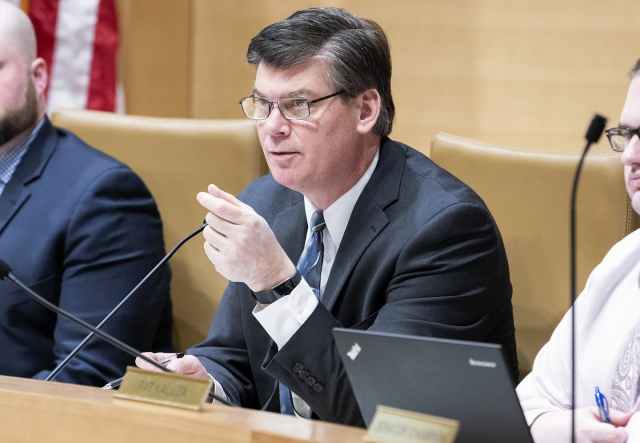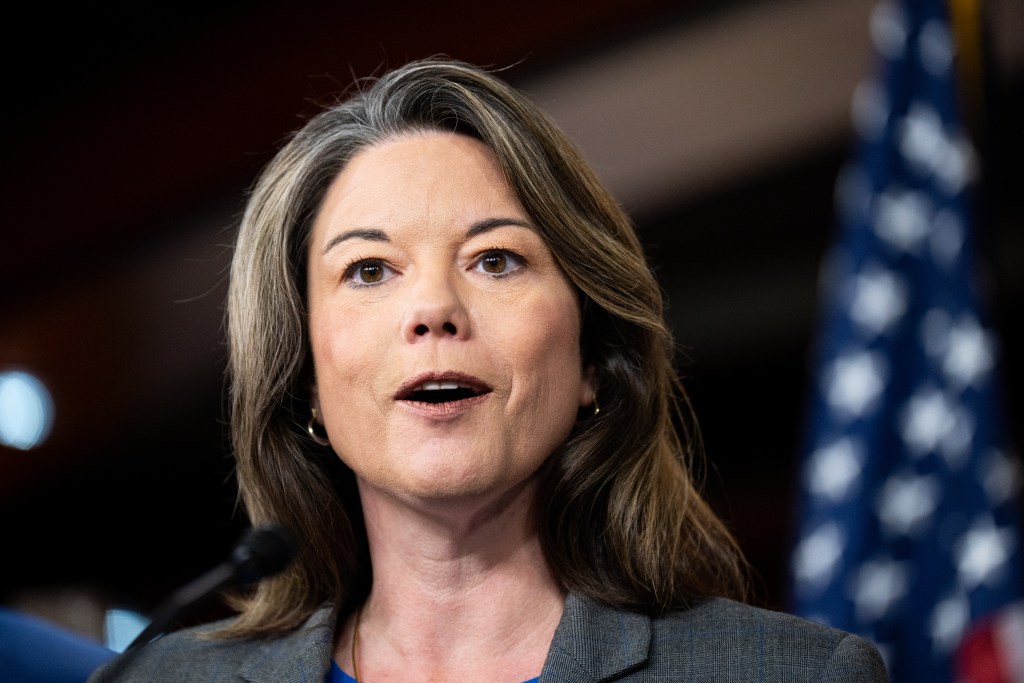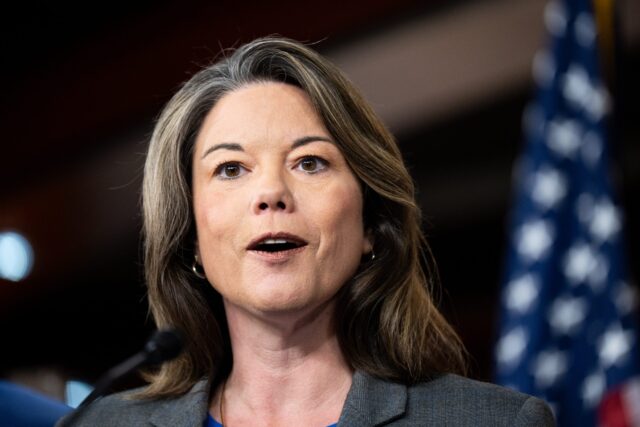



WASHINGTON – Democrats have an early edge when it comes to fundraising for the most competitive congressional race in Minnesota – one that is likely to become one of hottest and costliest midterm contests in the nation, as well.
Former state senator and former mayor of Lakeville Matt Little, a Democrat, raised the most money in the campaign for Rep. Angie Craig’s 2nd District seat in the first six months of this year, a little more than $306,000. Craig is not running for reelection because she is making a bid for retiring U.S. Sen. Tina Smith’s seat.
Another Democrat running for Craig’s seat, state Sen. Matt Klein, reported raising a little more than $214,000 in campaign cash to the Federal Election Commission.
And Republican Tyler Kistner, a former Marine who tried unsuccessfully to unseat Craig in both 2020 and 2022, has raised a little more than $100,000 for his third try for the 2nd District seat.

Kistner has a new GOP rival. State Sen. Eric Pratt announced Monday that he is running for Craig’s seat, too.
That brought an immediate attack from Kistner, who accused Pratt of not being supportive enough of President Donald Trump. Kistner had help from MAGA activist Laura Loomer, who posted a video of a 2016 debate in which Pratt said he was disappointed in the two candidates running for the White House that year.
Pratt’s campaign said the new congressional candidate voted for Trump in 2016 and again in 2024.
But the race is on for the support of GOP activists in the district, who tend to be ultraconservative and will determine who wins the nomination in the party’s convention in April.
“Eric Pratt represents the same tired, weak-kneed Republicanism that voters across this country have already rejected,” Kistner said in a statement.
Meanwhile, Pratt indicated he’ll run on bread-and-butter issues and avoid “political theater.”
“President Trump is making strides and bringing energy back to our economy, but families in CD2 still need someone who can win in November to keep that momentum going,” Pratt said in a release announcing his campaign.

The splintering of GOP support could lead to a replay of the 2024 election in which Joe Teirab and Tayler Rahm vied to be the GOP candidate to challenge Craig.
With the help of party activists in the 2nd District, Rahm, the more conservative candidate, won his party’s endorsement, touching off a bitter GOP primary fight that benefitted Craig, who decisively won reelection in what is considered a “purple” district.
Incumbents have an advantage
There are other congressional contests shaping up in Minnesota.
Rep. Brad Finstad, R-1st District, has drawn a Democratic challenger, Jacob Johnson, who is a longtime teacher in the Rochester public school system.
Finstad, who has not had a serious challenge since he was first elected to Congress in 2022, raised a little over $518,000 in campaign cash for his reelection.
Johnson has not raised as much, only about $264,000, but that’s a good start for a congressional challenger.
Related: D.C. Memo: Dem candidates top GOP rivals in Senate race fundraising
Nearly half of Finstad’s campaign money, about $223,000, was raised from political action committees, or PACs, including AIPAC, the House Conservative Fund, and many PACs representing agricultural interests, including the Cargill PAC. Finstad has as seat on the House Agriculture Committee.

Meanwhile, Rep. Michelle Fischbach, R-7th District, has handily outraised Democratic opponent Erik Osberg. Fischbach, who has a seat on the coveted Ways and Means Committee, raised about $310,000 for her re-election. Osberg has raised about $49,000.
Minnesota’s other congressional incumbents have not drawn a challenger – at least not yet.
But all of the lawmakers have continued to raise campaign cash – a good way to fend off rivals.
Freshman Rep. Kelly Morrison, D-3rd District, has raised about $395,000.
Rep. Betty McCollum, D-4th District, has raised more than $478,000. And Rep. Ilhan Omar, D-5th District, who always draws a well-funded challenger, has raised more than $1.3 million.
On the GOP side, Rep. Pete Stauber, R-8th District, raised about $615,000 and had about $778,000 in cash on hand as of June 30.
The fundraising king of the Minnesota congressional delegation, however, was Rep. Tom Emmer, R-6th District, who has the No. 3 slot in the House GOP leadership as majority whip.
Emmer raised $3.9 million for his re-election. That war chest will help Emmer be a player in next year’s mid-term elections, allowing him to donate to GOP candidates across the nation and expand his influence.
Kistner is among those likely to benefit from Emmer’s help. “They communicate and (Emmer) knows what our campaign is up to,” said Kistner political director Billy Grant.
Dems lead in generic ballot
Next year, all 435 U.S. House seats and 35 U.S. Senate seats – including the one vacated by Tina Smith – will be up for grabs. The results of the 2026 midterm elections will determine Trump’s ability to continue to push his legislative agenda through Congress.
In an April study, The University of Virginia’s Center for Politics has determined that the GOP is in danger of losing its slim hold on the House – and could also lose control of the Senate.
The midterm will be the “first opportunity for voters across the entire nation to express their views on the drastic changes in the role of the executive branch and in many government policies during the first two years of the second Trump administration,” according to the center.
Historically, midterm elections generally result in losses for the party in the White House. But the Center for Politics also says the slight preference right now for Democrats over Republicans in a generic ballot – as of now – will translate into GOP losses in Congress, even as the Democratic Party has low favorability ratings in some national polls.
The post The race for Angie Craig’s US House seat is heating up appeared first on MinnPost.
















































